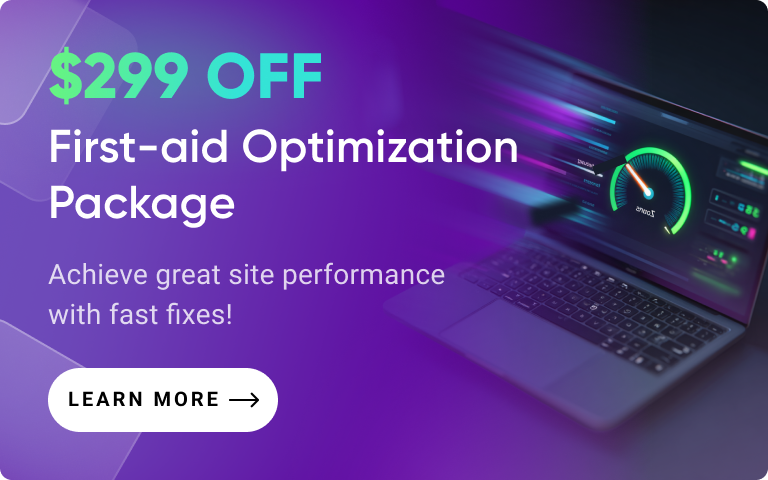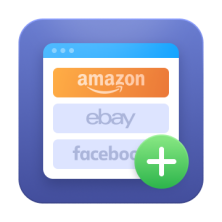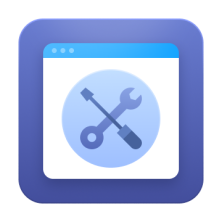For Magento-driven businesses, staying ahead of the competition means not just attracting customers, but creating lasting relationships with them. This is where the integration of a robust Customer Relationship Management (CRM) system with Magento 2 can become a game-changer.
The right CRM integration can help your businesses streamline operations, improve customer service, and ultimately drive sales growth. In this article, we explore the 7 best CRM integrations for Magento 2, focusing on how they can let you leverage customer data and insights to build stronger customer relationships.
What is Magento CRM?
A Magento CRM (Customer Relationship Management) system is a tool designed to help e-commerce businesses manage and analyze customer interactions and data throughout the customer lifecycle. The goal of integrating a CRM system with Magento is to improve business relationships with customers, assist in customer retention, and drive sales growth. For businesses seeking custom solutions, partnering with skilled CRM developers can ensure seamless integration and provide the tailored features necessary for managing customer relationships efficiently.
When you collect data from various touchpoints within the Magento platform – such as purchases, customer service interactions, and social media activity – a CRM system helps you understand your customer base, personalize marketing efforts, and streamline sales processes. For those in the financial sector, utilizing a specialized CRM for financial advisors can further enhance client relationship management, ensuring personalized service and efficient data handling. CRM systems vary in type, including those with open-source and proprietary licenses, as well as self-hosted and cloud-based or SaaS solutions.
Why Does Your Magento 2 Store Need CRM Integration?
Integrating a CRM with your Magento 2 store brings several key advantages.
- Centralized database of customer information, which simplifies managing customer relationships across multiple channels.
- Automation of sales and marketing processes, making it easier to target, engage, and retain customers.
- Valuable insights into customer behavior, preferences, and buying patterns, allowing you to make data-driven decisions, optimize marketing strategies, and enhance the overall customer experience.
Features of Magento CRM System
A comprehensive Magento CRM system should offer the following features:
- Customer Data Management – A centralized repository for storing and managing all customer information.
- Sales Automation – Tools for streamlining the sales process, from lead generation to conversion.
- Marketing Automation – Capabilities for creating and managing marketing campaigns tailored to customer segments.
- Customer Service Management – Features for improving customer support and service delivery.
- Analytics and Reporting – Insights into customer behavior, sales trends, and campaign effectiveness.
7 Best CRM Integrations for Magento 2 Stores
CRM | Best for | Key Features | Pricing |
HubSpot | Small to medium-sized businesses enhancing inbound marketing efforts. |
| Free; Premium starts at $50/month |
Salesforce | Businesses of all sizes in need of a scalable, customizable CRM. |
| Starts at $25/user/month |
Zoho CRM | Small to medium businesses focusing on multichannel management. |
| Free for 3 users; Starts at $14/month |
Infusionsoft by Keap | Small businesses automating sales and marketing processes. |
| Starts at $79/month |
Microsoft Dynamics 365 | Medium to large enterprises needing comprehensive ERP and CRM. |
| Custom quote needed |
Pipedrive | Sales teams that need an effective CRM to streamline sales process. |
| Starts at $15/user/month |
Freshsales | Businesses enhancing sales and customer interactions. |
| Free; Paid starts at $15/user/month |
1. HubSpot
Best for: Small to medium-sized businesses looking to scale and enhance their inbound marketing efforts.
HubSpot is a CRM platform that specializes in inbound marketing, sales, and customer service. Its integration with Magento 2 transforms e-commerce stores into dynamic sales engines. By syncing customer data and sales information in real-time, HubSpot offers personalized marketing automation workflows, detailed analytics, and customer relationship management all in one place.
Designed for growth, HubSpot is an ideal choice for businesses aiming to attract, engage, and delight customers at scale. Its user-friendly interface and extensive resources make it a go-to for companies looking to leverage their online presence for enhanced customer engagement and sales.
Key Features:
- Seamless Magento 2 integration, syncing customer data and sales information in real-time.
- Powerful marketing automation tools to nurture leads through personalized email marketing campaigns.
- Comprehensive analytics dashboard to track customer interactions and campaign performance.
- A built-in CRM system that organizes every detail about your contacts and customers in a single platform.
Pricing Plans:
- Free to start, with premium plans starting from $50/month, scaling up based on the level of functionality and number of contacts.
Pros:
- User-friendly interface with easy setup and management.
- Robust marketing and sales features in one platform.
- Excellent customer support and resources.
Cons:
- Can become expensive as your contact list grows.
- Some advanced features require a steep learning curve.
2. Salesforce
Best for: Businesses of all sizes that require a scalable, comprehensive CRM solution with extensive customization capabilities.
Salesforce is a powerhouse in the CRM industry, known for its extensive customization options and scalability. Integrating Salesforce with Magento 2 enables businesses to leverage a 360-degree view of their customers, from sales to customer service. With its robust set of tools for sales and marketing automation as well as powerful analytics and reporting capabilities, Salesforce turns customer data into actionable insights.
Salesforce is designed to grow with your business, offering a wide range of applications and integrations through its ecosystem. Despite its complexity, the potential for customization and efficiency makes Salesforce a top choice for businesses committed to comprehensive customer relationship management.
Key Features:
- Deep integration with Magento 2, enabling real-time customer data synchronization.
- Advanced sales and marketing automation tools to drive sales through personalized customer journeys.
- Extensive reporting and analytics for data-driven decision-making.
- A highly customizable platform that can be tailored to fit specific business processes and workflows.
Pricing Plans:
- Pricing starts at $25/user/month for the Essentials plan, with more advanced plans available depending on business needs.
Pros:
- Highly customizable and scalable for businesses of all sizes.
- A strong ecosystem with numerous third-party apps and integrations.
- Powerful analytics and reporting capabilities.
Cons:
- The complexity of the system might require dedicated staff or training.
- Higher cost of ownership compared to other CRM solutions.
3. Zoho CRM
Best for: Small to medium businesses focusing on multichannel management and looking for an affordable yet powerful CRM solution.
Zoho CRM is an all-in-one CRM solution that excels in affordability and ease of use, making it ideal for small to medium-sized businesses. With its Magento 2 integration, Zoho CRM enhances the e-commerce experience by automating sales processes, managing customer interactions across multiple channels, and providing insightful analytics.
Zoho supports businesses in building a centralized database of customer information, facilitating better communication and personalized marketing efforts. Its affordability, combined with a robust feature set and user-friendly interface, positions it as a compelling option for businesses looking to streamline their operations and improve customer engagement without breaking the bank.
Key Features:
- Easy integration with Magento 2, allowing for efficient data transfer between platforms.
- Multichannel support, including email, social media, live chat, and phone, provides a comprehensive view of customer interactions.
- Automation of sales processes, lead generation, and contact management to enhance productivity.
- Customizable dashboards and reports for monitoring sales performance and customer engagement.
Pricing Plans:
- Offers a free plan for up to three users. Paid plans start at $14/user/month, offering additional features and capabilities.
Pros:
- Affordable pricing with a free entry-level option.
- User-friendly interface and easy setup.
- Comprehensive multichannel support.
Cons:
- The free plan is limited in features and scalability.
- Customization options can be overwhelming for new users.
4. Infusionsoft by Keap
Best for: Small businesses seeking an all-in-one CRM solution to manage and automate sales and marketing processes.
Infusionsoft (now known as Keap) is specifically designed for small businesses, combining CRM, sales automation, and email marketing functionality into a single platform. Its integration with Magento 2 allows for the automation of repetitive tasks, such as contact management, payment processing, and follow-up emails, making it easier for businesses to nurture leads and close sales.
The platform shines in its ability to create personalized customer experiences through advanced segmentation and behavioral triggers. For small businesses looking to grow without increasing their workload, Infusionsoft offers a comprehensive suite of tools to streamline operations and enhance customer engagement.
Key Features:
- Advanced email marketing and automation tools.
- Comprehensive CRM capabilities with detailed customer profiles.
- Sales pipeline management and reporting.
Pricing Plans:
- Starts at $79/month, with plans scaling based on the number of contacts and the inclusion of additional features.
Pros:
- Highly customizable automation and email marketing tools.
- User-friendly interface and robust support resources.
- Effective for managing the entire customer lifecycle.
Cons:
- Can be expensive for startups and very small businesses.
- Learning curve to fully utilize all features.
5. Microsoft Dynamics 365
Best for: Medium to large enterprises looking for a comprehensive ERP and CRM solution.
Microsoft Dynamics 365 is a comprehensive suite of enterprise resource planning (ERP) and CRM software applications. Dynamics 365 integrates seamlessly with Magento 2, providing businesses with a unified solution for managing finance, operations, sales, and customer service. It is highly adaptable, allowing for customization to fit unique business processes and requirements.
The strength of Microsoft Dynamics 365 lies in its ability to offer deep insights into customer data, operational efficiency, and business intelligence, all powered by artificial intelligence and data analytics. For businesses seeking an enterprise-level solution that supports growth and scalability, Dynamics 365 is a formidable choice.
Key Features:
- Deep integration capabilities with Magento 2 and other Microsoft products.
- Advanced analytics powered by AI and machine learning.
- Customizable to suit various business processes and industries.
Pricing Plans:
- Pricing varies significantly based on the modules chosen and the scale of implementation. A direct quote is recommended.
Pros:
- Extensive integration with Microsoft products and services.
- Scalable and customizable to a high degree.
- Strong analytics and AI capabilities.
Cons:
- Complexity and cost can be prohibitive for smaller businesses.
- The vast array of features may require specialized training to utilize effectively.
6. Pipedrive
Best for: Sales teams in need of a straightforward, effective CRM to streamline their sales process.
Pipedrive is a sales-focused CRM designed to make the sales process as efficient as possible. With its integration into Magento 2, businesses can streamline their sales pipeline by automatically capturing and organizing lead and customer data.
Pipedrive stands out for its user-friendly interface and practical sales management tools, such as deal tracking, activity reminders, and performance analytics. It's built for sales teams that need a straightforward, effective tool to help them close deals faster. Pipedrive excels at simplifying complex sales processes, making it an excellent choice for businesses looking to boost their sales efficiency with minimal fuss.
Key Features:
- Visual sales pipeline management.
- Customizable activity and goal tracking.
- Integration with a wide range of apps and tools.
Pricing Plans:
- Plans start at $15/user/month, offering various tiers that add more advanced features.
Pros:
- Intuitive and easy-to-use interface.
- Strong focus on sales management and tracking.
- Affordable pricing for small to mid-sized businesses.
Cons:
- Limited in terms of broader marketing automation features.
- Customization options may not be as extensive as other CRMs.
7. Freshsales
Best for: Businesses seeking a comprehensive, intuitive CRM solution for enhancing sales and customer interactions.
Freshsales by Freshworks is a dynamic CRM solution known for its user-friendly interface and comprehensive sales and marketing tools. Integrating seamlessly with Magento 2, it enables businesses to automate their sales process, manage leads, and create personalized customer interactions.
Freshsales offers a 360-degree view of the customer, combining email, chat, and phone communications in a single thread. With AI-driven insights and a robust set of features, it’s designed to help businesses of all sizes close deals faster and nurture lasting customer relationships.
Key Features:
- 360-degree customer view.
- AI-driven insights and analytics.
- Sales and marketing automation.
Pricing Plans:
- Offers a free version with basic features. Paid plans start at $15/user/month, with advanced functionality at higher tiers.
Pros:
- Intuitive and easy to navigate.
- Comprehensive sales and marketing features.
- Affordable pricing with a free entry-level option.
Cons:
- Advanced features require higher-tier plans.
- Customization options may be limited for complex business processes.
How to Integrate CRM with Magento 2 Store?
Integrating a CRM system with your Magento 2 store involves several steps:
- Choose the Best CRM for Magento 2. Consider your business needs, the size of your customer base, and your budget.
- Use Extensions or APIs. Most CRMs offer Magento 2 extensions or APIs for integration. Choose the most compatible and secure option.
- Customize and Configure. Tailor the CRM system to fit your business processes, including sales workflows, customer segmentation, and data synchronization settings.
- Test the Integration. Ensure that data flows seamlessly between Magento 2 and the CRM, and that all functionalities are working as expected.
- Train Your Team. Educate your staff on how to use the CRM system effectively to maximize its benefits.
On a Final Note
A CRM integration is crucial for Magento 2 stores aiming to enhance their customer relationship management and drive business growth. You can significantly improve your store’s performance by understanding your customers better, automating marketing and sales processes, and leveraging data-driven insights using the best CRM for Magento 2 that fits your business.
Ensure a seamless, efficient integration that unlocks the full potential of your e-commerce business with Amasty’s Magento Integration Service!
FAQ
No, Magento does not come with a built-in CRM. However, it can be integrated with various CRM platforms to manage customer relationships effectively.
Salesforce is often considered the No. 1 CRM in the market, known for its extensive features, scalability, and customization options.
The best CRM software depends on your business needs. Salesforce, HubSpot, and Zoho CRM are highly rated for their comprehensive features and integration capabilities.
HubSpot is known for its user-friendly interface, making it one of the easiest CRMs to use, especially for small to medium-sized businesses.





















